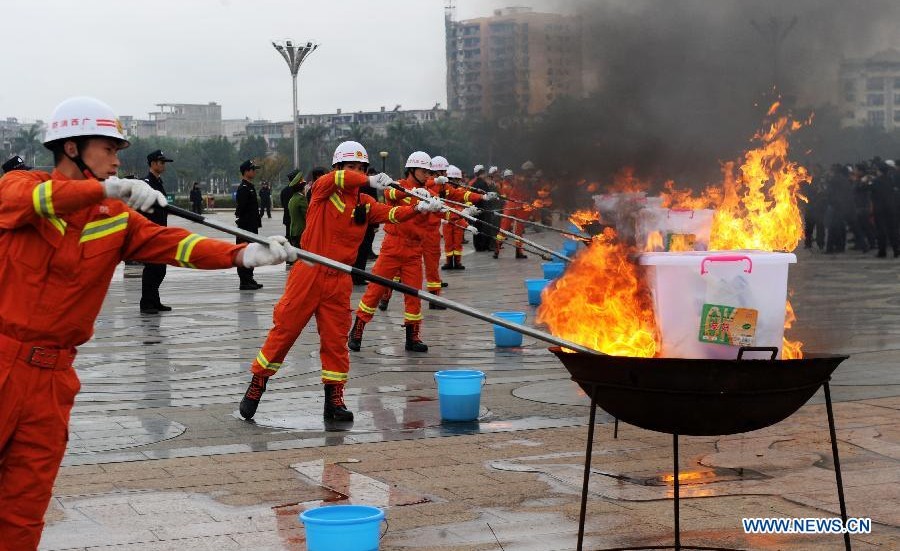In the first ten months of the year, Guangdong police seized over 30 tons of narcotics in the country’s ongoing war on drugs. In addition to the seized narcotics, Guangdong authorities closed 98 drug production facilities, and arrested some 20,000 suspects with connections to 1,000 drug rings.
The seizures mark a significant increase over last year’s figures. By comparison, Guangdong police announced at the beginning of 2014 that they had arrested 10,836 suspected drug traffickers and seized 8.1 tons of drugs over six months of what police dubbed “Operation Thunder”.
China’s intense crackdown on drugs has continued from last year, targeting members of China’s entertainment industry, such as Chinese superstar Jackie Chan’s son, Jaycee, as well as a number of expats. In the latter instance, Beijing expats were targeted via Facebook in illegal drug crackdowns amid rising drug use, culminating in eight arrests in May.
Expats had been already on edge with the news that police were conducting random drug tests at Beijing bars in August 2014.
At the end of 2014, China held a “100-day campaign” against illegal drugs throughout the country in which 60,000 suspects were arrested, and some 11 tons of drugs seized. Liu Yuejin, the country’s drug czar at the time, said the mass arrests had “sown terror” in drug criminals, and was only achievable as a result of the “unprecedented strength” and “extraordinary measures” of police.
However, last year also saw an extraordinary rise of synthetic drug use throughout China. Accounting for 80 percent of new drug users in China, the country has seen an increase in usage of 6.5 times since 2008.
According to China’s National Narcotics Control Commission, there were 2.9 million registered drug users in China in 2014. However, estimates of all users in the country put the number at somewhere around 14 million users.


